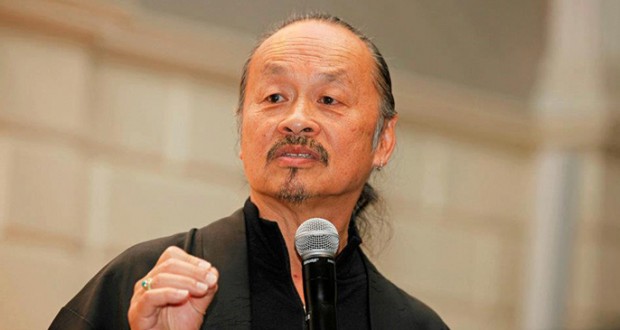
Watch My Exclusive Interview with:
Lee Mun Wah
In the Color of Fear – released in 1994 – director Lee Mun Wah gathered eight North American men: two African American, two Latinos, two Asian American and two Caucasian. They were brought together to discuss the state of race in relations in America as seen through their eyes. The exchanges were often times dramatic, but it did put into perspective the pain that racism has caused in North America.
The film was considered as one of the greatest contributions to education and social justice in the 20th century. It remains his most powerful film about racism and won the Gold Medal for Best Social Studies Documentary.
Although America has made steps towards leaving behind a past steeped in racism, the issue is still prevalent today.
As he did more than twenty years ago, Chinese American documentary filmmaker, author, poet, Asian folk teller, educator, community therapist and master diversity trainer still continues to his quest to have people live peacefully with each other.
Lee says, “It is my personal belief that there is no burial site deep enough to hide the pain and humiliation of racism.” He also adds, “The term ‘tolerating’ differences is a good example. The dictionary defines tolerating as ‘putting up with.’ It is my belief that when people of color are ‘put up with’ they are always visitors living within rules, both stated and unspoken, that change on them when it is appropriate and are seldom part of the policy-making or interviewing process. This type of environment creates a lot of anguish and pain that needs to expressed and dealt with if we are to have a multicultural environment that allows for full and equal participation.”
To help make this a reality, Lee works as the Executive Director of Stirfry Seminars & Consulting, a diversity training company providing educational tools and workshops on issues relating to cross-cultural communication and awareness, mindful facilitation and conflict mediation techniques. Lee’s workshops have been taken by social service agencies, corporations and educational institutions with some partnering with Stirfry for their diversity initiatives.
For over 25 years, Lee was a resource specialist and counselor in the San Francisco Unified School District. He then became a consultant to private schools where he worked with students who had severe learning and behavioral issues.
Lee’s first film was Stolen Ground and it was about the experience of Asian Americans. The film won an honorable mention at the San Francisco International Film Festival. Lee also released part two of The Color of Fear called Walking Each Other Home which won the Cindy Competition Silver Medal for Social Science award.
In 1995, Lee was presented in one of the biggest stages ever: in an Oprah Winfrey special. Oprah did a one-hour special on the life and work of Lee that was seen by more than 15 million viewers all over the world.
Lee directed and produced the three-part documentary Last Chance for Eden in 2005. The documentary focused in sexism and racism.
Apart from producing documentaries, Lee has written books. His latest effort is called Let’s Get Real – What People of Color Can’t Say & Whites Don’t Ask About Racism which was released in 2011.
Another documentary film called If These Halls Could Talk was released in 2014 and focused on the dialogue of college students about race, racism and other issues on diversity.
For Lee, people cannot wait for a leader to show up and bring us all together. We have to be willing individual participants in confronting our fears and starting conversations with the people we love and were taught to fear. Each generation will suffer if we continue to be separate and unequal. For us to co-exist peacefully, we must embrace our differences, as well as our mutuality.
Achieving this in our lifetime is what Lee Mun Wah calls the true meaning of multiculturalism.
Links of Interest:
Related Links:
- Colorism vs. Racism: A New Paradigm on Race with Jane Elliott
- How Africans Turned White and How White Will Become Brown
The Philippe Matthews Show (Recurring) Programming Donation
If you enjoy the content featured on our Blog, Radio and Live Video show, please give a one-time donation or recurring donation to help with further research, production and show topics.

 Philippe Matthews Show Guru Advice, Author Reviews, Tech Reviews, Entertainment News
Philippe Matthews Show Guru Advice, Author Reviews, Tech Reviews, Entertainment News







